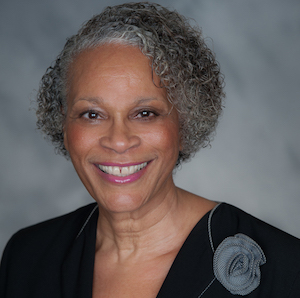

<p><img class=" alignright size-full wp-image-1580" src="http://schoolnewsnz.fastrackdev.com/wp-content/uploads/2015/06/SND16-wk4-Seminar-Arnetha_Ball.jpg" alt="SND16-wk4-Seminar-Arnetha Ball" style="margin: 5px; float: right;" width="300" height="298" />The increase in diverse students in our classrooms and the best ways to teach them is the topic of a seminar at the University of Auckland this evening. <!--more--> </p>
<p>Stanford University&#8217;s Professor Arnetha Ball will share preliminary findings of her research into the teaching of students from diverse backgrounds.</p>
<p>Worldwide trends show that more and more young school pupils are coming from diverse backgrounds, while statistics show that the majority of teachers consist of mostly women who come from backgrounds that are very different from their students.</p>
<p>However, teachers that have undergone specialised training in preparation programmes specifically designed to prepare teachers for diversity are experiencing greater success.</p>
<p>Professor Ball has gained access to four of these programmes and will share preliminary findings from her current research project that investigates the successful educational programmes she visited in the United States, South Africa, Australia, and New Zealand (four countries with sizeable populations of historically excluded and/or marginalised students).</p>
<p>This is Professor Ball&#8217;s third visit to New Zealand. While here she is visiting schools in Auckland and attending the He Manuwa Whenua Indigenous Research Conference in Hamilton next week.</p>
<p>Professor Ball is a Professor in the Graduate School of Education at Stanford University in the Curriculum Studies, Teacher Education, and the Race, Inequality and Language Programmes. She is co-director of Stanford&#8217;s Cent for Race, Ethnicity and Language, and President of the American Educational Research Association.</p>
<p>Her research is designed to advance sociocultural theory through studies that investigate ways in which semiotic systems &#8211; the study of signs and symbols as elements of communicative behaviour &#8211; and traditional oral and written language can serve as a means for mediating teaching and learning in culturally and linguistically diverse settings.</p>
<p>Her interdisciplinary programme of research is conducted in complex learning environments that face the challenge of improving education for diverse populations in three intersecting contexts: US schools where predominantly poor African American, Latino/a, and Pacific Island students are underachieving; community- based organisations providing alternative education <a class="wpil_keyword_link" href="https://www.schoolnews.co.nz/2015/10/developing-opportunities-at-school-with-a-view/" title="opportunities" data-wpil-keyword-link="linked" target="_blank">opportunities</a> for academic and/or economic success; and US and South African teacher education programmes that prepare teachers to teach students in culturally and linguistically complex classrooms.</p>
<p>Professor Ball&#8217;s seminar, &#8220;Cross-National Perspectives on Preparing Education Professionals as Agents of Change: Applying the Model of Generative Change in Transnational Contexts&#8221;, is at the University&#8217;s Faculty of Education and Social Work, at 5.15pm on Wednesday, June 24. RSVP: dvaball.eventbrite.co.nz</p></p>

Professional learning and development (PLD) for teachers needs to be higher impact for teachers and…
Students displayed increasing AI literacy when explicitly asked to engage with the technology for their…
A new Government collective offer will be voted on by members of NZEI Te Riu…
New Zealand’s education system is a canvas of opportunity to inspire and empower every child.…
When done well, a wellbeing challenge can build habits that support wellbeing for life—and lays…
Te Akatea Inc., the National Māori Principals’ Association has released a discussion paper reflecting on…
This website uses cookies.